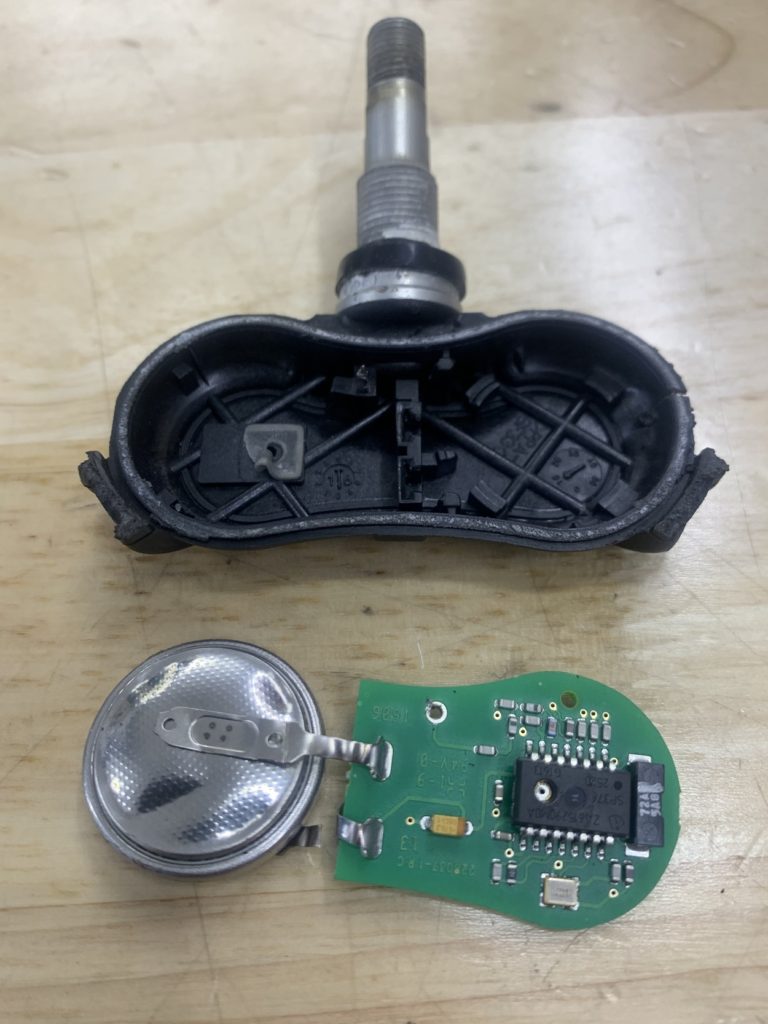What are TPMS (Tire Pressure Monitoring System) and What Do they Do?
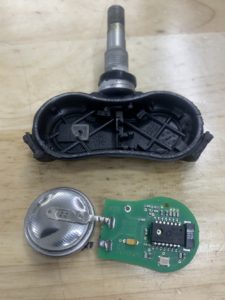 TPMS, or Tire Pressure Monitoring System, is an electronic system that monitors the air pressure in a vehicle’s tires. It is designed to alert the driver when the pressure in one or more tires falls below a safe level. The system uses small sensors that are mounted inside the tires and transmit real-time pressure information to the vehicle’s on-board computer. This information is then displayed on the dashboard, usually in the form of a warning light. The main purpose of TPMS is to help prevent accidents and improve fuel efficiency by ensuring that tires are properly inflated at all times. However, the sensor batteries have a limited lifespan and need to be replaced regularly to ensure that the TPMS continues to function correctly. In this article, we will discuss the factors that affect TPMS sensor battery life, average lifespan, how to check for low battery levels, options for replacing or recharging the batteries, and the importance of proper sensor battery maintenance.
TPMS, or Tire Pressure Monitoring System, is an electronic system that monitors the air pressure in a vehicle’s tires. It is designed to alert the driver when the pressure in one or more tires falls below a safe level. The system uses small sensors that are mounted inside the tires and transmit real-time pressure information to the vehicle’s on-board computer. This information is then displayed on the dashboard, usually in the form of a warning light. The main purpose of TPMS is to help prevent accidents and improve fuel efficiency by ensuring that tires are properly inflated at all times. However, the sensor batteries have a limited lifespan and need to be replaced regularly to ensure that the TPMS continues to function correctly. In this article, we will discuss the factors that affect TPMS sensor battery life, average lifespan, how to check for low battery levels, options for replacing or recharging the batteries, and the importance of proper sensor battery maintenance.
TPMS Sensor Battery Life
Factors that Affect Sensor Battery Life
The lifespan of a TPMS sensor battery is affected by a number of factors, including the type of battery used, the frequency of use, and the environment in which the vehicle is operated. For example, batteries that are exposed to extreme temperatures or high levels of vibration may have a shorter lifespan than those that are not.
Average Lifespan of TPMS Sensor Batteries
The average lifespan of a TPMS sensor battery is typically between 5 and 7 years, but this can vary depending on the factors listed above. Some manufacturers offer longer battery life for their sensors.
How to Check For Low Battery Levels in TPMS Sensors
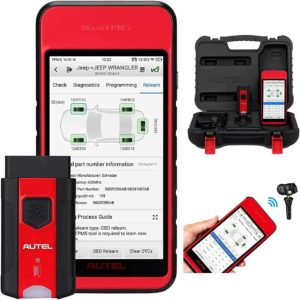 Some vehicles have a warning light on the dashboard that alerts the driver when a sensor battery is low. Most vehicles have two settings, one that tells the driver that a tire is low, and the other that tells the driver the sensor is not working properly. Most commonly, when the tire light appears steady lit, a tire is low on air, and when a tire light is flashing, the sensor itself is at fault. In other cases, the driver may need to use a diagnostic tool to check the battery level.
Some vehicles have a warning light on the dashboard that alerts the driver when a sensor battery is low. Most vehicles have two settings, one that tells the driver that a tire is low, and the other that tells the driver the sensor is not working properly. Most commonly, when the tire light appears steady lit, a tire is low on air, and when a tire light is flashing, the sensor itself is at fault. In other cases, the driver may need to use a diagnostic tool to check the battery level.
Options for Replacing or Recharging TPMS Sensor Batteries
When a sensor battery needs to be replaced, the sensor itself usually needs to be replaced as well. Some sensors can be recharged, but this is not always an option. It’s also important to note that some vehicles require OEM (Original Equipment Manufacturer) sensors, while others can use aftermarket sensors.
Sensor Battery Maintenance
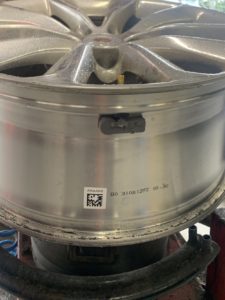 Proper sensor battery maintenance is important to ensure that the TPMS continues to function correctly. This includes regular battery check-ups and replacement of batteries when necessary. This means when your tire light is on or flashing, pull over and determine if you need to adjust the air pressure, or replace a failing sensor.
Proper sensor battery maintenance is important to ensure that the TPMS continues to function correctly. This includes regular battery check-ups and replacement of batteries when necessary. This means when your tire light is on or flashing, pull over and determine if you need to adjust the air pressure, or replace a failing sensor.
Importance of Proper TPMS Battery Maintenance
When a sensor battery is low or failing, the TPMS may not function properly, which can lead to inaccurate tire pressure readings and a false sense of security for the driver. This can increase the risk of accidents, tire wear, and fuel consumption.
Regular TPMS Battery Checks
Regularly checking the battery levels in TPMS sensors is essential to ensure that the system is functioning correctly and to prevent unexpected sensor failure. This can be done by the vehicle owner or by a professional mechanic. This is the tool I have been using to check battery levels of TPMS sensors.
Consistently checking the battery levels in TPMS sensors is essential to ensure that the system is functioning correctly and to prevent unexpected sensor failure. Proper sensor battery maintenance, including regular check-ups and timely replacement of batteries, can help to extend the life of TPMS sensors and ensure that the system is working correctly at all times. Not only that, but it’s also important to use OEM or compatible sensors as they have been tested and approved by the vehicle’s manufacturer to ensure the best performance. Keeping the sensors in good working order is crucial for the overall safety of the vehicle and the driver.
TPMS Sensor Battery Life is Important
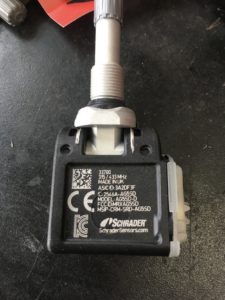 In conclusion, TPMS sensor battery life is an important factor to consider when maintaining a vehicle’s Tire Pressure Monitoring System. The lifespan of a sensor battery can be affected by a variety of factors, and it’s important to regularly check the battery levels to ensure that the system is functioning correctly. When a sensor battery needs to be replaced, it’s important to use the appropriate tools and follow the vehicle’s manual instructions. If you have any doubts or need further assistance, head to your local tire shop. It’s also important to use OEM or compatible sensors as they have been tested and approved by the vehicle’s manufacturer to ensure the best performance. Keeping TPMS sensors in good working order is crucial for the overall safety of the vehicle and the driver.
In conclusion, TPMS sensor battery life is an important factor to consider when maintaining a vehicle’s Tire Pressure Monitoring System. The lifespan of a sensor battery can be affected by a variety of factors, and it’s important to regularly check the battery levels to ensure that the system is functioning correctly. When a sensor battery needs to be replaced, it’s important to use the appropriate tools and follow the vehicle’s manual instructions. If you have any doubts or need further assistance, head to your local tire shop. It’s also important to use OEM or compatible sensors as they have been tested and approved by the vehicle’s manufacturer to ensure the best performance. Keeping TPMS sensors in good working order is crucial for the overall safety of the vehicle and the driver.
